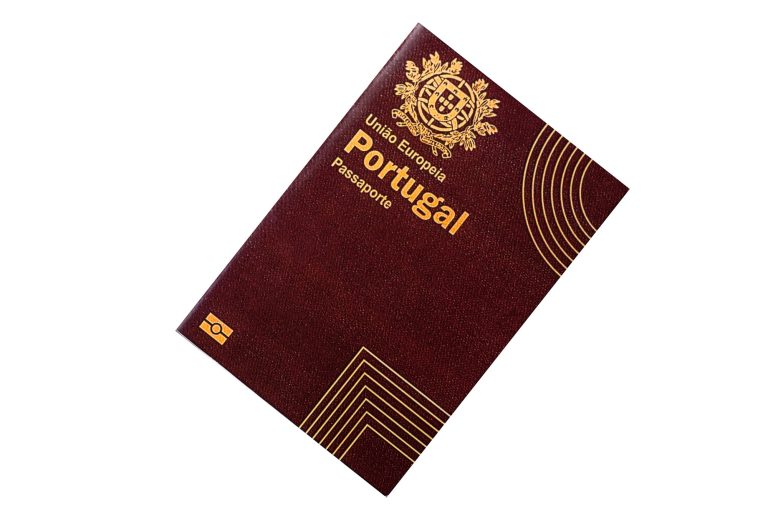Portugal’s cost of living compared to Europe and beyond in 2025
Portugal continues to offer one of Europe’s most attractive cost-to-quality ratios, with living expenses 28-40% lower than Western European neighbors while maintaining high standards in healthcare, safety, and lifestyle. As immigration to Portugal reaches record levels in 2025, understanding how costs compare across Europe and major source countries becomes essential for making informed relocation decisions.
Recent data shows Portugal’s cost of living index at 46.6, positioning it as Western Europe’s most affordable destination. Yet regional variations create dramatically different experiences – from Lisbon’s cosmopolitan pricing approaching Western European levels to interior regions offering costs 50% below the capital. The end of the original Non-Habitual Resident tax regime in March 2025 marks a significant shift, though Portugal’s fundamental value proposition remains strong for most expat profiles.
Portugal’s current cost landscape
Monthly living costs in Portugal vary significantly by location and lifestyle. A single person in Lisbon needs €1,767 monthly including rent, while Porto requires approximately €1,400. Move to emerging destinations like Braga or interior regions, and comfortable living drops to €1,000-1,200 monthly. Families of four should budget €3,010 nationally, though Lisbon pushes this to €4,492.
Housing drives the biggest regional differences. Lisbon’s city center apartments command €1,200 for one bedroom, with property prices reaching €5,720 per square meter. Porto offers better value at €850 monthly rent and €3,768 per square meter to purchase. The Algarve varies wildly between tourist hotspots and residential areas, while interior cities like Évora or Coimbra offer one-bedroom apartments from €400-700 monthly.

Daily expenses remain reasonable nationwide. Grocery budgets run €150-250 for singles and €300-400 for families. Restaurant meals cost €8-11 for casual dining, with the beloved prato do dia lunch specials offering exceptional value. Public transport passes cost €30-40 monthly in major cities, though Portugal ranks fourth in Europe for car ownership costs at €1.70 per liter for fuel.
Healthcare represents exceptional value. The public system provides free coverage for residents with minimal co-payments of €5-20. Private insurance costs €30-150 monthly per person, enabling consultations for €50-60 with general practitioners. International schools present a significant expense at €400-1,800 monthly, though public education remains free.
Western Europe towers above Portugal’s costs
Germany leads the expense gap, costing 34% more overall than Portugal. While German salaries average €38,086 annually versus Portugal’s €18,000-22,000, the purchasing power advantage reaches 117%. Berlin apartments rent for €1,200-2,000 monthly, Munich pushes higher, yet Germany’s €49 Deutschlandticket offers nationwide public transport – a value Portugal cannot match. Electricity costs €39.43 per 100 kWh rank among Europe’s highest. EURES
France presents a paradox – 42% higher living costs but 12% cheaper rent than Portugal. Paris apartments command €1,500-2,200 monthly, yet smaller French cities offer surprising value. French grocery costs exceed Portugal’s by 60%, while restaurant prices run 53% higher. The average €31,481 salary provides 79% greater purchasing power than Portuguese wages.
| Country | Overall Cost vs Portugal | Rent vs Portugal | Average Net Salary | Purchasing Power |
|---|---|---|---|---|
| Germany | +34% | +1% | €38,086 | +117% |
| France | +42% | -12% | €31,481 | +79% |
| Netherlands | +38% | +36% | €45,000+ | +122% |
| Belgium | +35% | -16% | €31,000+ | +95% |
| Austria | +43% | -7% | €35,000+ | +81% |
| Luxembourg | +40% | +67% | €49,035 | +220% |
| Ireland | +43% | +86% | €35,000+ | +76% |
The Netherlands showcases how high costs meet high rewards – 38% more expensive overall with Amsterdam rents reaching €2,000-2,500. Yet Dutch salaries averaging €45,000+ provide 122% greater purchasing power. Belgium follows a similar pattern at 35% higher costs but competitive rents 16% below Portugal. Austria’s 43% premium includes Vienna’s cultural riches, while maintaining rents just 7% below Portuguese levels.
Luxembourg and Ireland represent extremes. Luxembourg combines 40% higher living costs with Europe’s highest salaries at €49,035, creating 220% superior purchasing power despite €1,800-2,500 rents. Ireland’s housing crisis drives rents 86% above Portugal, with Dublin demanding €2,000-3,000 monthly, though €35,000+ salaries partially compensate.
Nordic and Eastern Europe paint contrasting pictures
Nordic countries universally exceed Portuguese costs while delivering world-class quality of life. Denmark tops the expense chart at 61% above Portugal, though surprisingly, rents run just 13% higher. The trade-off includes Europe’s highest tax rate at 55.9% but fourth-ranked quality of life. Euronews Copenhagen property reaches €6,350 per square meter while salaries range €2,800-3,500 monthly.
Sweden and Finland offer unexpected rental bargains – 9% and 18% below Portugal respectively. Living costs remain 33-41% higher, offset by €2,500-3,200 monthly salaries and exceptional public services. Relocate.me Finland’s 190.4 quality of life score ranks fifth in Europe, numbeo justifying the premium for many expats.
Southern European neighbors provide minimal savings. Spain costs merely 4% more than Portugal with 7% lower rents, making lateral moves questionable. Italy runs 26% more expensive despite 17% cheaper rents, while Greece offers 46% rental savings but 16% higher overall costs amid lower quality metrics.
Eastern Europe delivers genuine savings. Poland costs 10% less with 24% lower rents, though €1,200-1,600 salaries limit purchasing power. Czech Republic barely exceeds Portuguese costs at 4% while offering 75.5 healthcare scores and favorable 23% tax rates. Hungary, Romania, and Bulgaria provide 7-17% savings with rents 56-61% below Portugal, though quality of life indices lag significantly.
Americas and beyond reveal dramatic disparities
Immigration from the Americas brings varied financial implications. USA to Portugal movers enjoy 35% cost reductions, with New York’s $4,000-6,000 rents making Lisbon’s €1,200 seem bargain-priced. Americans face global tax obligations regardless of residence, though the Foreign Earned Income Exclusion allows $130,000 tax-free.
Brazilian immigrants confront challenging economics – Portugal costs 40% more despite Brazil’s €665 average salary in São Paulo. Housing jumps 60-80% while utilities rise 40-60%. The compensation includes dramatically improved infrastructure, reliable services, and EU residency benefits. Canadians find 25% savings, particularly in housing where Toronto’s CAD $2,400-3,500 rents exceed Portuguese levels.
| Source Country | Cost Change to Portugal | Housing Change | Average Salary | Key Challenge |
|---|---|---|---|---|
| USA | -35% | -50% to -70% | $75,000+ | Global taxation |
| Canada | -25% | -30% to -50% | CAD $65,000+ | Departure tax |
| Brazil | +40% | +60% to +80% | R$3,593 | Low purchasing power |
| UK | -40% | -40% | £2,371 | Post-Brexit complexity |
| India | +300-400% | +300-400% | ₹93,422 | Dramatic cost increase |
| China | +200-300% | +200% | ¥6,744 | Currency disadvantage |
Venezuela presents unique circumstances where 15% higher costs pale against quality improvements. Moving from economic instability to EU standards transforms daily life despite financial increases. UK residents benefit from 40% savings post-Brexit, with London’s housing crisis making Portuguese property attractive.
Asian and African source countries face the steepest adjustments. India and China see 300-400% cost increases, with Mumbai’s ₹30,000 ($360) rents jumping to €900+ in Lisbon. Angola and Cape Verde immigrants experience 200-500% increases offset by massive quality gains. South Africa offers surprising middle ground with 50-60% lower costs than Portugal but reasonable infrastructure.
Regional variations create distinct opportunities
Portugal’s interior regions offer remarkable value for flexible expats. Évora in Alentejo provides one-bedroom apartments from €400-500 with property at €1,507 per square meter – ideal for retirees seeking authentic Portuguese life. The Centro region towns like Aveiro (44% below Lisbon rents) and Leiria (€450 monthly) combine affordability with proximity to larger cities.
Emerging destinations capture growing attention. Braga, named Europe’s Leading Emerging Tourism Destination 2024, offers €500-650 rents with Portugal’s youngest population and thriving tech scene. The Silver Coast between Lisbon and Porto provides coastal living without Algarve premiums, while maintaining easy capital access.
Island life presents unique economics. Madeira reduces VAT to 22% and caps resident flights at €86 return, offset by €3,003 per square meter property prices. Digital nomads flock to Ponta do Sol’s dedicated village. The Azores offer Portugal’s lowest costs at €1,485 per square meter with 16% VAT, though isolation limits some conveniences.
Hidden costs emerge in tourist zones where services cost 30-50% above residential areas. International healthcare becomes essential at €35-85 monthly outside main cities. Property taxes vary regionally – IMI runs 0.3-0.5% annually while wealthy individuals face AIMI charges above €600,000 thresholds.
Tax implications reshape expat economics
The NHR regime’s March 2025 termination marks a watershed moment. The replacement IFICI program restricts benefits to researchers, academics, and tech professionals, offering 20% flat tax on Portuguese income and foreign income exemptions. Critically, foreign pensions now face standard tax rates up to 48% – devastating for retirees planning under old rules.

Standard Portuguese tax rates remain progressive but reasonable below high incomes. The first €7,703 faces just 13% tax, rising gradually to 48% above €80,640 plus solidarity charges reaching 5% above €250,000. Social security adds 11% for employees, while self-employed pay 21.4%.
Regional advantages persist in autonomous regions. Madeira offers 5% corporate rates for certain activities while Azores reduces personal income tax and VAT. These benefits particularly suit location-independent businesses and digital nomads establishing European bases.
Quality factors balance financial considerations
Portugal’s quality metrics often outweigh pure cost calculations. Healthcare ranks first globally for expats according to International Living, with WHO placing Portugal 12th worldwide. The public SNS system provides universal coverage with nominal fees, Wikipedia while private options remain affordable at €65-145 per consultation.
Safety statistics impress with Portugal seventh globally on the Global Peace Index. Crime rates of 30 per 10,000 people fall below the 44 global average, while political stability ensures predictable living conditions. The 300+ annual sunny days enable year-round outdoor lifestyles impossible in much of Europe. nomadcapitalist
Digital infrastructure supports modern work with widespread fiber internet and extensive coworking networks. Portugal ranks sixth globally for English proficiency, smoothing integration for many expats. The D8 Digital Nomad Visa’s €3,480 monthly income requirement remains achievable for remote professionals.
Integration challenges persist around language – A2 Portuguese becomes mandatory for citizenship while government interactions require basic proficiency. The reward includes access to Portuguese culture’s legendary work-life balance, café society, and festival traditions that define southern European living.
Economic outlook shapes future costs
Portugal’s economic trajectory suggests continued moderate growth with GDP expanding 1.7% in 2024 and 1.9% projected for 2025. Inflation dropped from 5.3% to 2.6% in 2024, heading toward 2.1% in 2025. These figures suggest stabilizing costs after recent volatility.
Housing markets show no signs of cooling with 16.92% year-over-year appreciation through April 2025. Rental growth moderates from 7.1% to 5.2% annually, though Lisbon and Porto maintain severe supply constraints. Construction costs rising 3.7% annually limit new supply, perpetuating imbalances in popular areas.
Employment reaches record highs at 64.1% participation while unemployment falls toward 6.2%. Skill shortages in technology, construction, and healthcare drive wage growth exceeding GDP expansion. This benefits expats with relevant skills while pressuring service costs across the economy.
The combination of rising housing costs, ended tax benefits, and moderate inflation creates a new Portuguese reality. While no longer Europe’s hidden gem, Portugal maintains compelling advantages through quality of life, safety, climate, and relative affordability. Success requires careful location selection, realistic budgeting, and understanding that yesterday’s Portuguese bargains have evolved into today’s fair value proposition. For those prioritizing lifestyle over pure savings, Portugal continues delivering one of Europe’s best overall packages.







